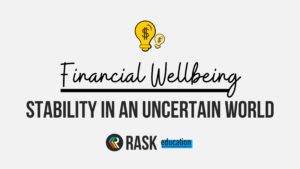You’ve just purchased your very first ASX share and you’re feeling like a legitimate grownup now. You know, someone who does things like ‘invest in their future’ and all that.
However, you can’t bring out the bubbles just yet, because like everything, there’s paperwork to sort out (sigh). Take it from me, if you don’t get some of these things sorted out in the beginning, it will make life more difficult for you down the track.
In this article I’ll take you through the main paperwork you’ll receive after buying a share (or ETF), what you’ll need to set up in the share registry and the details you’ll need to keep track of for tax time (I know, I know, kinda takes the fun out of it).
What is a CHESS statement?
Let’s start with one of the first documents you’ll receive in the post because while you can buy shares at the click of a button, it’s still a bit manual in the back end.
CHESS (breaking apart this acronym won’t be of any benefit, just know it’s our Australian clearing system that settles share sales made via the ASX) will send you this statement in the post, confirming that the shares have been allocated to you.
I always like to have a glance at this statement to double-check my details, but other than that, I generally shred them after the pile builds up.
What is a share registry like Computershare & Link? Do I need to do anything?
Now that you’re a shareholder you have certain benefits, like voting at Annual General Meetings (AGMs), receiving dividends (if the board chooses to pay one) and getting a copy of their annual report, although anyone can access that online, so you’re not that special. However, since your company is hopefully busy growing the business, they hand off all the shareholder administration duties to an external share registry to run the show.
Common names to get familiar with here are Computershare, Link Market Services and BoardRoom, although there are some smaller players running around as well.
The share registry will be your hub of administration, where you can do everything from setting up dividend reinvestment plans (DRPs), vote and change your communication preferences. You can also download distribution and tax statements that you’ll need at the end of the financial year.
Maybe the most important thing you can do is make sure your tax file number (TFN) is recorded, otherwise you may find yourself having tax withheld on any dividends paid to you (and you’ll need to remember to claim that back on your tax return).
Should I keep my paper statements?
You might also receive documents in the post from your new share registry asking you about your payment, tax and communication preferences. It’s much easier to just head into the share registry to update these details, but it’s totally fine to fill in and send back those forms as well.
If you elect to keep receiving all your documents via post, you’ll just need to be super careful to update your address every time you move, or you might lose track of important details!
If you’re lucky, your broker may do the heavy lifting for you here and actually send across your details to the share registry, but it doesn’t always happen so you should check anyway!
Shares: Do I need to keep anything for tax?
This video explains 5 essential tips for share investing, including managing dividends and tax.
Now the fun bit. If you haven’t heard yet, you must pay tax on any capital gains made when you sell or receive a dividend from your shares in Australia.
I typically keep track of the purchase date, purchase price, ticker code and total purchase cost (cost base). I’ll also keep any statements I receive via email in a specific folder, so they’re accessible at tax time. You can also download dividend statements in your share registry account (once they’re issued).
Common methods of tracking all this for tax time include using Excel, Google Sheets, and Sharesight (my personal favourite).



